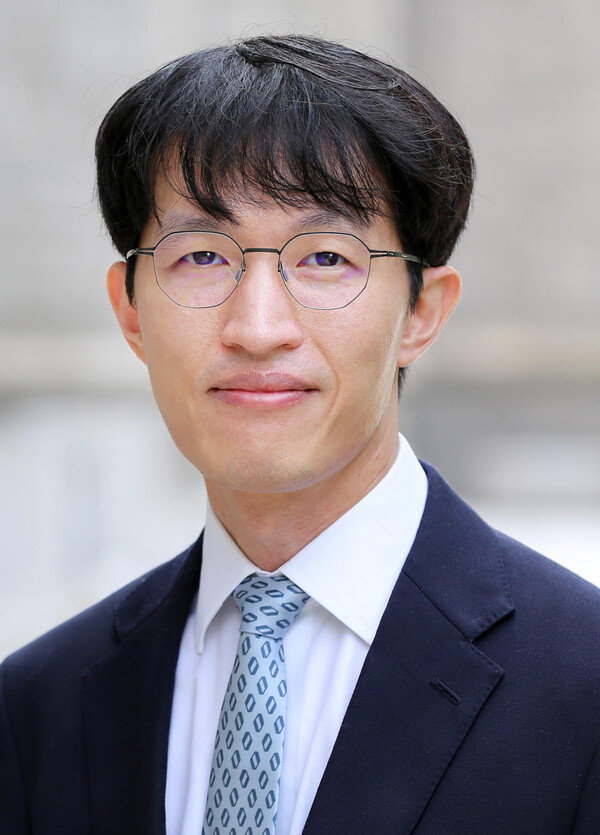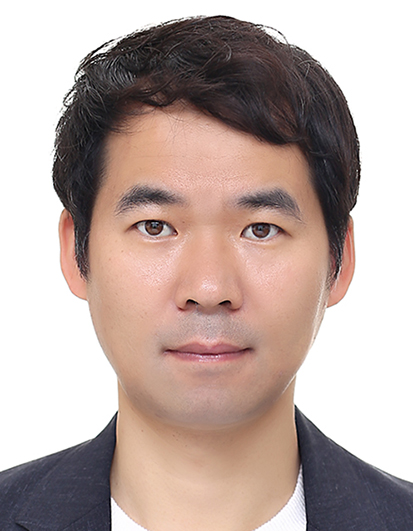
Numerical Challenges in Korea
South Korea has been breaking its own record for the world's lowest birth rate every year recently. The average number of children expected per woman was only 0.78 as of 2022, marking the first global record of the rate dipping below 0.8. Korea even witnessed more deaths than births in 2020, leading to what is termed a "population death cross."
In response to this alarming demographic development, approximately 332 trillion KRW has been spent over the past 17 years in an attempt to boost the population. This year, President Yoon Suk-yeol announced a concentrated investment of more than 50 trillion KRW.
Despite these efforts, the birth rate in the first quarter of this year reached an all-time low. A degree of cynicism is tangible when observing citizens' reactions: "Korea does not deserve to have children," some people say, arguing that the government has yet to address the fundamental reasons behind the ultra-low birth rate and has instead chosen to evade the issue. The question is as following; what is the real cause behind the government's reluctance to confront this impending demographic crisis?
South Korea faced a heartbreaking incident on June 21 when two infant corpses were found in an refrigerator at an apartment in Suwon. Shockingly, the children were murdered by their own biological mother. Given the impending crisis of ultra-low birth rates, it was disheartening to witness the failure in safeguarding those newborns. To uncover the real cause of population disaster, we must investigate the question of why our society could not prevent tragic losses such as the aforementioned case.
The Deep Rooted Problem
The distressing crime of killing or abandoning newborns is not a new phenomenon in Korea. Statistics from the National Police Agency reveal that between 2010 and 2020, there were 1,271 reported cases of infant abandonment and 110 cases of infanticide. This means that every month, 13 infants were abandoned and among them, one infant tragically lost his or her life.
The Board of Audit and Inspection of Korea has been investigating cases of infants who were born but not properly registered since last March. Their examination records from 2015 up to last year already revealed 2,236 unreported infants. The infamous Suwon Infant Refrigerator Abandonment Case also emerged during this investigation. In addition, unrecorded cases of "out-of-hospital births," estimated to be between 100 to 200 cases per year, increase the potential statistics. As there is no definite way to confirm these cases, safeguarding the welfare of newborns remains a pressing concern for the nation.
Real Causes Behind Infant Crimes
The Suwon Infant Refrigerator Abandonment Case has ignited waves of strong criticism towards the biological mother. This has brought attention to a debate centering on the fact that numerous suspects involved in infanticide cases are prosecuted for specific charges related to infant murder, rather than general murder, resulting in reduced penalties. In a survey of 164 Hanyang University (HYU) students conducted by the Hanyang Journal (HJ), more than 80 percent of the respondents believed strengthening the punishment for infanticide was the just approach.
Calls for severe punishment for parents who abandon their sense of humanity are valid. However, before inflicting blame and punishment on faulty individuals, it is equally crucial to explore the underlying factors that drive some parents to commit such heinous acts.
Professor Hong Dae-un at Dongguk University's College of Law emphasized that while the abolition of infanticide marks a positive step, it may not entirely resolve such crimes: "Laws typically respond reactively, addressing events after they occur. Therefore, the imperative lies in eradicating the underlying factors leading to infanticide."

This is not to justify infanticide, but rather to highlight a pattern. To elaborate, childbirth has become intertwined with class divisions. Despite macroscopic economic advancements, economic and cultural disparities intensified, and employment remain bleak for younger generations. Consequently, mounting societal pressures make it more difficult for young parents to welcome children. The Suwon Infant Refrigerator Abandonment Case provides an example where economic poverty led the suspect, a call center worker, to murder two infants in secret from her husband. Critics point out that some parents, driven to the brink of desperation within gaps in the welfare system, may resort to infanticide.
Single parents, marginalized in society, encounter even greater obstacles. Data reveals that 72.1 percent of families who abandoned their children in the baby box in 2021 were unmarried. Among them, parents in their 20s accounted for 52 percent, followed by those in their 30s at 28 percent, and teenagers at 12 percent.
The majority of infant abandonment cases is a result of being unable to abort unwanted pregnancies. Adolescents are particularly vulnerable as they fear rejection and isolation from their families and schools if their pregnancies become public. This segregation further exacerbates their limited options for pregnancy termination because teenagers need parental consent for the surgery. This hesitation to come forward and undergo the abortion means the pregnancy progresses further, making the operation more expensive.
The challenges primarily affect women. Professor Hong noted, "While both women and men have the potential to commit infant murder, the actual percentage of men acting as perpetrators is approximately 2 percent." This is because women tend to take the responsibility for pregnancy and childbirth. Instances where young women inform fathers of the baby about their pregnancy and seek assistance often result in communication breakdown, leaving unmarried single mothers isolated and constrained in their choices.
Isolated single mothers, unable to care for their children, often seek safe options like adoption through baby boxes. Yet, negative reactions towards this choice further complicate the adoption process. According to the Seoul Metropolitan Police Department, the police are taking legal action against 24 cases of baby box abandonment. Critics argue that these police responses may drive single mothers away from seeking assistance and instead opt for tragic measures like infanticide. As an instance, the Suwon infanticide suspect has admitted to committing the crime from the fear of being punished for abandoning her child in a baby box.
Even if they want to raise the child, Korean society is often unwelcoming to single mothers. A survey conducted by Korea Population Health and Welfare Association in 2018 revealed that 82.7 percent of the 258 unmarried mothers reported being exposed to negative prejudice about raising a child alone. 27.9 percent said that it was recommended they resign from work, and 11.6 percent experienced forced withdrawal from school, leading to further problems of unemployment and economic hardships.
Kim Young-chul, a Professor at Sogang University's College of Economics explained, "Nonmarital childbirth is currently a very dangerous choice in Korea. Unmarried families are completely excluded from society." Being a single mother creates barriers to carrying out a normal life, such as pursuing new relationships, marriages, and occupations

Policies in Dispute
In an endeavor to protect newborns, policymakers are currently exploring various reforms. Even so, these have sparked significant controversy.
Firstly, the "Hospital-Based Birth Notification System" bill passed the plenary session of the National Assembly on June 30. Previously, hospitals have simply issued birth certificates and parents have been responsible for reporting births. Therefore, until they register births, the government cannot identify whether babies were born or not, leading to omissions or delays, as well as the aforementioned criminal incidents. Under the new measure, medical institutions must inform the nation of births as soon as babies are born, eliminating the possibility of parents avoiding registering their children.
However, some critics argue that this system may inadvertently lead to unmarried parents opting for out-ofhospital births. Professor Kim explained the clear side effect of it as follows: "If birth registration becomes compulsory, single mothers fearing public disgrace might choose to resort to clandestine births, putting their infants at risk or abandoning them secretly." When single mothers register the birth of the newborn, there is going to be a public record of an extramarital child. Due to the social stigma, this can be a huge risk for some mothers. "The efficacy of the HospitalBased Birth Notification System in addressing infanticide remains uncertain without additional supplementation," Professor Kim stated.
Secondly, aimed at aiding and safeguarding single mothers hesitant to register their child's birth, the "Anonymous Birth System" is being proposed as a supplement to the Hospital-Based Birth Notification System. It takes inspiration from similar practices already in place in countries such as France, Germany and the United States of America, where pregnant women are allowed to register their infants anonymously after consultation.
Advocates of the anonymous birth system argue that it ensures the child's survival and protection. The objective is to offer a safety net for single mothers facing difficult circumstances, preventing them from infanticidal crime.
However, it may not be entirely suitable for the current situation in Korea. An Anonymous Childbirth System may help biological parents avoid parenting while social isolation and economic challenges faced by unmarried couples remain unresolved. This could lead to increased cases of child abandonment.
Moreover, the currently proposed Anonymous Birth System bill only allows parents' personal information to be revealed with their consent. This provision restricts the child's basic rights, including the right to know one's biological parents' identities. Professor Kim suggested the Anonymous Birth System could temporarily serve to complement the Hospital-Based Birth Notification System. Even in that case, additional social and institutional measures to protect children born anonymously are needed.
Demand for Stereotype Reform
As policymakers struggle to address infant crimes, they have considered Hospital-Based and Anonymous Birth Notification Systems. Nevertheless, these measures offer only superficial solutions. To bring about real change, more profound shifts are necessary. One of them is to foster an environment in which unmarried parents do not feel the need for anonymity.
Firstly, a transformation in sex education is crucial. In Korea, there is a culture of keeping sex-related information hidden and treating it as taboo. This becomes a reason behind adolescents having a negative impression about sex and concealing their pregnancy. Instead, it is important to educate teenagers about sex, pregnancy, and childbirth properly, equipping them with accurate information to safeguard themselves.
Meanwhile, Professor Kim highlighted the importance of nonmartial births in Korea: "While many OECD countries supplement around 40 percent of newborns through extramarital births, we are just giving it up. If Korea were to align with the OECD average for out-of-wedlock births, a simple calculation suggests the total fertility rate could rise to 1.55, closely approaching the recent OECD average of 1.61." This signifies a need to secure safe and managed non-marital births in context of Korea's low birth rate.
As of 2020, Korea's out-of-wedlock birth rate stands at a mere 2.3 percent, contrasting sharply with the OECD average of 42 percent. The prevailing social stigma surrounding singleparent or non-married families and the dichotomous family system have played a significant role in keeping this rate low. In contrast, major OECD countries witnessed the rapid expansion of domestic partnerships, effectively increasing the birth rates. Notably, in Europe, embracing non-traditional family structures has been pivotal in driving arebound in fertility rates.
For extramarital births to be socially accepted, the government should institutionalize more flexible and modern family forms beyond traditional marriages. Single-parent and nonmarried families should be recognized and registered just like any other family, being allowed to receive essential support and benefits, including parental leave, tax deductions, preferential apartment applications, and health insurance. It is no surprise that this measure stands as the key to preventing a low birth rate.
Professor Kim argued, "South Korea possesses one of the most rigid and outdated family cultures among OECD countries. Maintaining the status quo will only exacerbate the declining birth rate without hope for improvement."
Cooperative Rearing is Needed
Various factors contribute to the prevalence of infant crimes, and many of them reflect the challenges of childbirth and parenting in Korea. The strict scrutiny of children in Korean society prevails just as keenly as the prejudice against unmarried parents. The prevalence of derogatory terms like "mom-choong," (which directly translates to "mother bug," denotes mothers who do not discipline their children properly) exemplifies the challenging environment parents face when taking their children to public places.
The hostile atmosphere often leads to parental isolation with childcare responsibilities falling solely on parents and immediate family members. Consequently, the reluctance to have children among young people has exacerbated as raising a child appears increasingly burdensome.

Ryou Ji-hyun, a Ph.D. Researcher in evolutionary anthropology at Seoul National University, highlighted the significance of "Cooperative Breeding" through an evolutionary anthropological lens. The Cooperative Breeding Hypothesis, suggested by Sarah Blaffer Hrdy, shows that childcare support from alloparents (adult animals caring for a baby that is not their offspring) is a critical determinant in whether infant abandonment occurs in cooperative breeding primates, including humans. According to this theory, disrupted cooperative parenting networks, characterized by the lack of childcare support, often lead to infant abandonment.
Ryou expects that the revival of dependable cooperative parenting networks will alleviate the burdens of childbirth and parenting. This implies that reestablishing social trust in cooperative childcare in the public sector is necessary. It would not only benefit single mothers but also relieve concerns among the younger generation regarding marriage and childbirth.
Ryou said, "The most important thing is for our society to share the premise that all children are precious." Fostering an inclusive atmosphere for child-rearing involves approaching children with understanding and respect, rather than judgment.
Time for a Change
The reality of infant-related crimes reveals the ineffectiveness of Korea's strategy to address the low birth rate and socially isolated people. Adolescents often lack proper sex education, newborns are killed and abandoned, and raising a child becomes a challenging burden, resulting in parental isolation. This contradiction between the desire for more children and the failure to seek a better environment for potential parents cannot be overlooked anymore.
The crucial solution is significant yet pious: to confront entrenched class disparities and societal competition. A more probable approach involves a change of thought. It is essential to implement comprehensive measures that provide support to diverse families and ensure proper education for teenagers.
Furthermore, collaborative efforts can bring about a change. As the old saying goes, "It takes a village to raise a child," it is important to focus on children and the marginalized in our midst, showing them respect and consideration.

